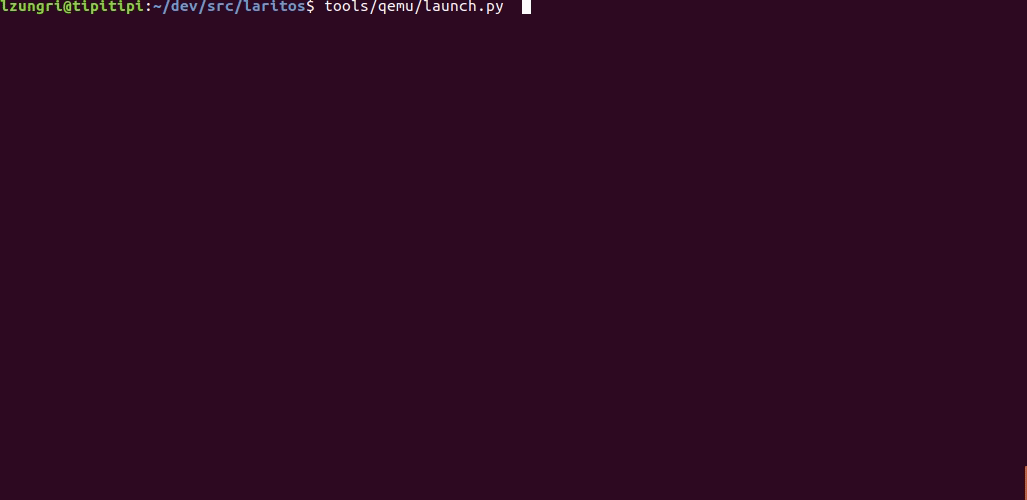laritOS 
laritOS is a highly-configurable, modular, test-driven developed operating system prototype created entirely from scratch, from bootloader to kernel, kernel to drivers, toolchain (including a minimal libc) to userspace applications.
The primary aim of laritOS is to provide a set of free resources (codebase, documentation, tutorials) for learning about operating system internals. Therefore, its focus is put mainly on simplicity, maintainability, modularity, debuggability and testability. Aspects such as performance, security, compatibility with existing OSes are not the priority for now.
The operating system is composed of the following 3 components, each of them with its corresponding repository:
| Component | Description |
|---|---|
| laritos | Kernel + drivers + board-specific resources + tests + misc tools |
| laritos-toolchain | Minimal libc + userspace apps building tools |
| laritos-apps | Userland applications such as shell, ps unix-like tool for listing processes, testing apps, etc |
Wiki
For the complete OS documentation, please refer to the wiki page
Features
Kernel features
- Multitasking with kernel preemption
- Userspace/kernelspace and system call support
- Testing infrastructure for Test Driven Development (TDD) with more than 250 tests already implemented
- Interrupt management infrastructure
- ARM 32bits support (
armv7a) - Spinlock support
- Semaphores, reentrant mutex and atomic32/64 support
- Priority-based scheduler (round robin by default)
- Support for multiple architectures by separating the kernel generic code from the architecture-specific code. So far, only the
armv7a(arm 32 bits) arch has been implemented - Monolitic but modular kernel (not a microkernel 😢)
- Configurable kernel parameters via the
Kbuildinfrastructure, this is the same builder used by Linux ported to laritOS - Configurable target hardware specs via
board/<boardname/*.bi(board information) files. This could be seen as a very simplified version of the Linux device tree - Hierarchical Virtual File System (
VFS) supportingext2andpseudofs(aka in-memory filesystems, e.g./proc,statsfs) - Kernel heap and stack protector
- Dynamic system configuration via properties (
/propertypseudo filesystem) - Monouser
- Userspace shell
- ELF support for userspace applications
- Health monitor service configurable via system properties
Future features
- SMP support
- UI
- Multiuser support
- Virtual memory
- Memory protection
- and many more...
Toolchain features
- Easy to use build tools
- Minimal libc support for functions such as sleep, chdir, listdir, open, close, read, write, spawn_process, waitpid, time, printf, yield, exit, and more
- ARM 32bits support (
armv7a) - Debug utilities
See laritos-toolchain repo for more info
Userspace features
- Minimal shell supporting commands such as cat, xxd, run, run in the background, cd, mkdir, ls, getprop, and others
psprogram for listing active processes
See laritos-app repo for more info
Building, installing and running
See wiki page
Status
laritOS is currently in alpha version, hence some features may not work as expected and stability is not guaranteed. Use at your own risk 💥
License
The code is licensed under the MIT license.

